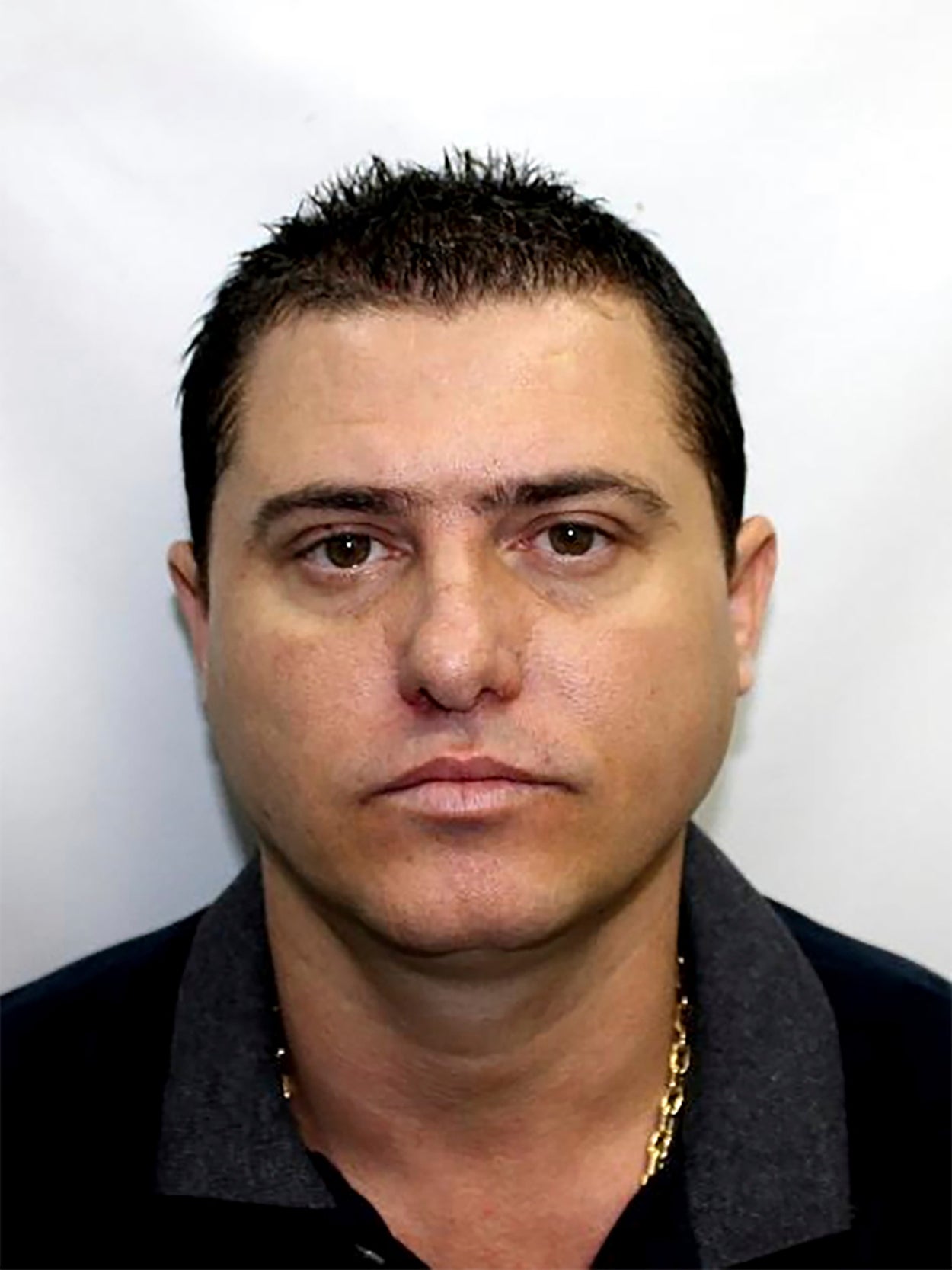A top Brazilian criminal leader is isolated in prison after he negotiated his own arrest
Authorities say one of Brazil’s top criminal leaders has been locked up in a 6-square-meter (65-square-foot) isolation cell at a maximum security prison to avoid being killed by rivals

Your support helps us to tell the story
From reproductive rights to climate change to Big Tech, The Independent is on the ground when the story is developing. Whether it's investigating the financials of Elon Musk's pro-Trump PAC or producing our latest documentary, 'The A Word', which shines a light on the American women fighting for reproductive rights, we know how important it is to parse out the facts from the messaging.
At such a critical moment in US history, we need reporters on the ground. Your donation allows us to keep sending journalists to speak to both sides of the story.
The Independent is trusted by Americans across the entire political spectrum. And unlike many other quality news outlets, we choose not to lock Americans out of our reporting and analysis with paywalls. We believe quality journalism should be available to everyone, paid for by those who can afford it.
Your support makes all the difference.One of Brazil's top criminal leaders was locked up in a 6-square-meter (65-square-foot) isolation cell at a maximum security prison to avoid being killed by rivals, authorities said Tuesday.
Luiz Antônio da Silva Braga, the boss of the largest militia group in the state of Rio de Janeiro, surrendered to federal police on Sunday. The criminal leader better known as Zinho was sent to the Bangu 1 prison, where drug traffickers and militia men are also held, Rio state's public security secretary Victor Santos said.
“Today, Zinho’s custody is a responsibility of the state,” he told TV channel GloboNews. “He is now in an isolated cell for us to secure his physical integrity.”
Zinho’s lawyer did not respond to a request for comment from The Associated Press following his arrest.
Militias emerged in the 1990s when they originally were made up mainly of former police officers, firefighters and soldiers who wanted to combat lawlessness in their neighborhoods. They charged residents for protection and other services, but more recently moved into drug trafficking themselves.
Zinho, whose militia group dominates Rio's west region, had 12 arrest warrants issued against him until he surrendered after a negotiation. He had been on the run since 2018, and rose to the top position of the group after his brother Wellington da Silva Braga, known as Ecko, was killed in 2021.
The militias are believed to control about 10% of Rio’s metropolitan area, according to a study last year by the non-profit Fogo Cruzado and a security-focused research group at the Fluminense Federal University. The militias are distinct from drug trafficking gangs that control important areas of Rio.
A Brazilian federal police source who had access to the investigation told The Associated Press that Zinho feared he could be executed if he turned himself in to Rio state police. The source, who spoke under condition of anonymity because he was not authorized to discuss the matter publicly, also said the criminal leader will not join other inmates at Bangu for sunbathing and meals due to security reasons.
Rio Gov. Claudio Castro said in a statement Monday that Zinho is “Rio's number one enemy" and celebrated his police forces for the arrest.
“This is another victory of our police and security plan,” Castro said. “The disarticulation of these criminal groups with arrests, raids, financial blocking and the arrest of that mobster show we are on the right path,” the governor said.
Authorities also said they would protect Zinho in the expectation he could sign a plea deal that could implicate members of police forces, politicians and businessmen.
“That will depend a lot on where the lawyers take him, what he can offer as information and, obviously, what benefits he can obtain from such a plea bargain,” Santos, the Rio state public security secretary said.
Ricardo Capelli, executive-secretary at Brazil's Justice Ministry, said the government of President Luiz Inácio Lula da Silva needs to “work to get to the spine of the connections of the organized crime and its financial moves. No one brings terror to one third of the city of Rio without having powerful connections,” he said in his social media channels.
The area dominated by Zinho’s group made news in October when gang members set fire to at least 35 buses in apparent retaliation for police killing one of the criminal leader's main allies. The attack caused no casualties, but it underlined the ability of the militias to cause chaos and inflict damage.
Zinho will stand trial on charges of forming a criminal organization, money laundering, extortion, bribing public officials and co-participating in August 2022 in the killing of former Rio councilor Jerônimo Guimarães Filho, better known as Jerominho.
Police investigators said Jerominho was shot dead under orders from Zinho, in an attempt to keep control of his criminal organization. Zinho's lawyers have long denied he had any connection with that case. He is also under investigation in several other killings of militia members.